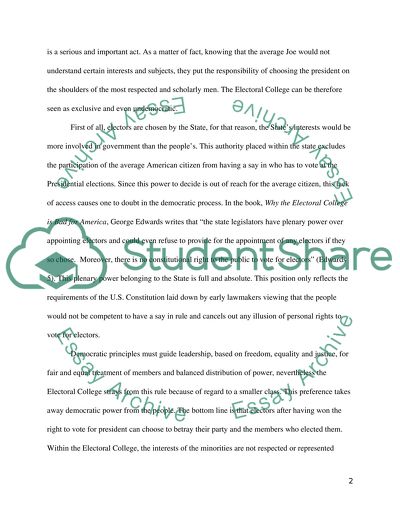Cite this document
(“Examination of the U.S. Electoral College: The Pros and the Cons Term Paper”, n.d.)
Retrieved from https://studentshare.org/politics/1449494-examination-of-the-us-electoral-college-the-pros-and-the-cons
Retrieved from https://studentshare.org/politics/1449494-examination-of-the-us-electoral-college-the-pros-and-the-cons
(Examination of the U.S. Electoral College: The Pros and the Cons Term Paper)
https://studentshare.org/politics/1449494-examination-of-the-us-electoral-college-the-pros-and-the-cons.
https://studentshare.org/politics/1449494-examination-of-the-us-electoral-college-the-pros-and-the-cons.
“Examination of the U.S. Electoral College: The Pros and the Cons Term Paper”, n.d. https://studentshare.org/politics/1449494-examination-of-the-us-electoral-college-the-pros-and-the-cons.


